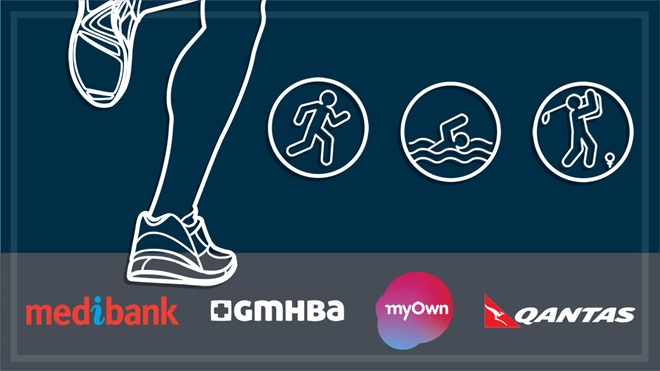Need to know
- Health funds Medibank, Qantas (NIB), GMHBA, RACQ (now AIA) and myOwn offer rewards schemes for their members
- Flights, shopping vouchers and more are on offer – but at what cost?
- GMHBA charges members a fee for their rewards program and doesn’t disclose the amount
Some health insurers offer their members rewards programs that let you earn points and rewards for meeting exercise goals and answering online questionnaires.
We review rewards programs offered by Medibank, Qantas (NIB), GMHBA, RACQ and myOwn to see what they offer, and whether they're worth it.
Some of the rewards you can earn include:
- 5% discount on your health insurance premium (myOwn, RACQ (now AIA) and GMHBA)
- $200 health insurance discount (Medibank)
- Free flights (Qantas/NIB)
Are health fund rewards programs worth it?
Considering that the average cost of health insurance for a family or couple is about $3600 per year, you really need to pick the best health cover for you – not the rewards program you like the look of. Otherwise, you might pay hundreds of dollars more than necessary, and not have the cover you need.
See the rewards as an added benefit. If your policy doesn't give you value for money, rewards won't make up the difference.
Lack of transparency by GMHBA
We have serious concerns about the lack of disclosure and transparency from GMHBA around the cost of their rewards program. GMHBA uses the AIA Vitality program, and adds a fee for that program to members' health insurance premiums.
If you engage enough with the program to get Silver status or higher, you get a 5% discount on your policy premium. But on some of the cheaper policies, this discount will be smaller than the fee for the program itself. And you can lose the discount if you don't engage enough with the program.
GMHBA did not agree to address our concerns about their rewards program
GMHBA allows its members to opt out of the program, but we see problems with their disclosure:
- GMHBA doesn't disclose the fee amount on its website.
- Only a total cost is displayed, so most members don't know they're signing up (and paying) for a rewards program as well.
- Members must phone up to opt out – there's no option to opt out directly when you take out the policy online.
- While GMHBA says you get a 5% discount on your policy, this is only available if you pay by direct debit. On other policies if you pay by direct debit you get a 2% discount – so the actual discount is only 3%.
We had similar concerns with myOwn and RACQ, and we contacted these funds along with GMHBA.
- myOwn and RACQ have made some changes to provide greater transparency to their members during the sign-up process. CHOICE has suggested further changes. The funds are currently reviewing these suggested changes and we will keep readers updated.
- GMHBA did not agree to take steps to address our concerns.
CHOICE has asked the ACCC to investigate whether GMHBA's conduct is misleading and deceptive.
"Health insurance pricing is already confusing enough. If an insurer adds another element to this, they need to provide clear and concise disclosure," says Dean Price, health campaigner at CHOICE.
"People need to be able to easily decide whether or not they want to opt into this extra cost and program. To make it difficult for members to opt out is not fair. Funds that are not providing a clear breakdown of costs are not giving people the tools they need to decide if they want to take part in a rewards program," says Price.
Insurers should make it clear
Michael Manthorpe, Commonwealth Ombudsman
Michael Manthorpe, Commonwealth Ombudsman, is also calling on health insurers to provide price transparency for their members: "In the interests of consumer transparency, insurers should make it clear at the point of sale and in product documentation that the consumer is purchasing two types of product, and that they may choose to opt out of the additional product."
"Ideally, the consumer is provided with a break-down of the premium prior to purchase so they can understand the cost of the additional product," says Manthorpe.
Health fund rewards programs reviewed
To help us assess the below rewards programs, we enlisted Dr Fiona McKay from Deakin University, who has reviewed and rated hundreds of health apps for VicHealth.
We're on your side
For more than 60 years, we've been making a difference for Australian consumers. In that time, we've never taken ads or sponsorship.
Instead we're funded by members who value expert reviews and independent product testing.
With no self-interest behind our advice, you don't just buy smarter, you get the answers that you need.
You know without hesitation what's safe for you and your family.
And you'll never be alone when something goes wrong or a business treats you unfairly.
Learn more about CHOICE membership today
Stock images: Getty, unless otherwise stated.



